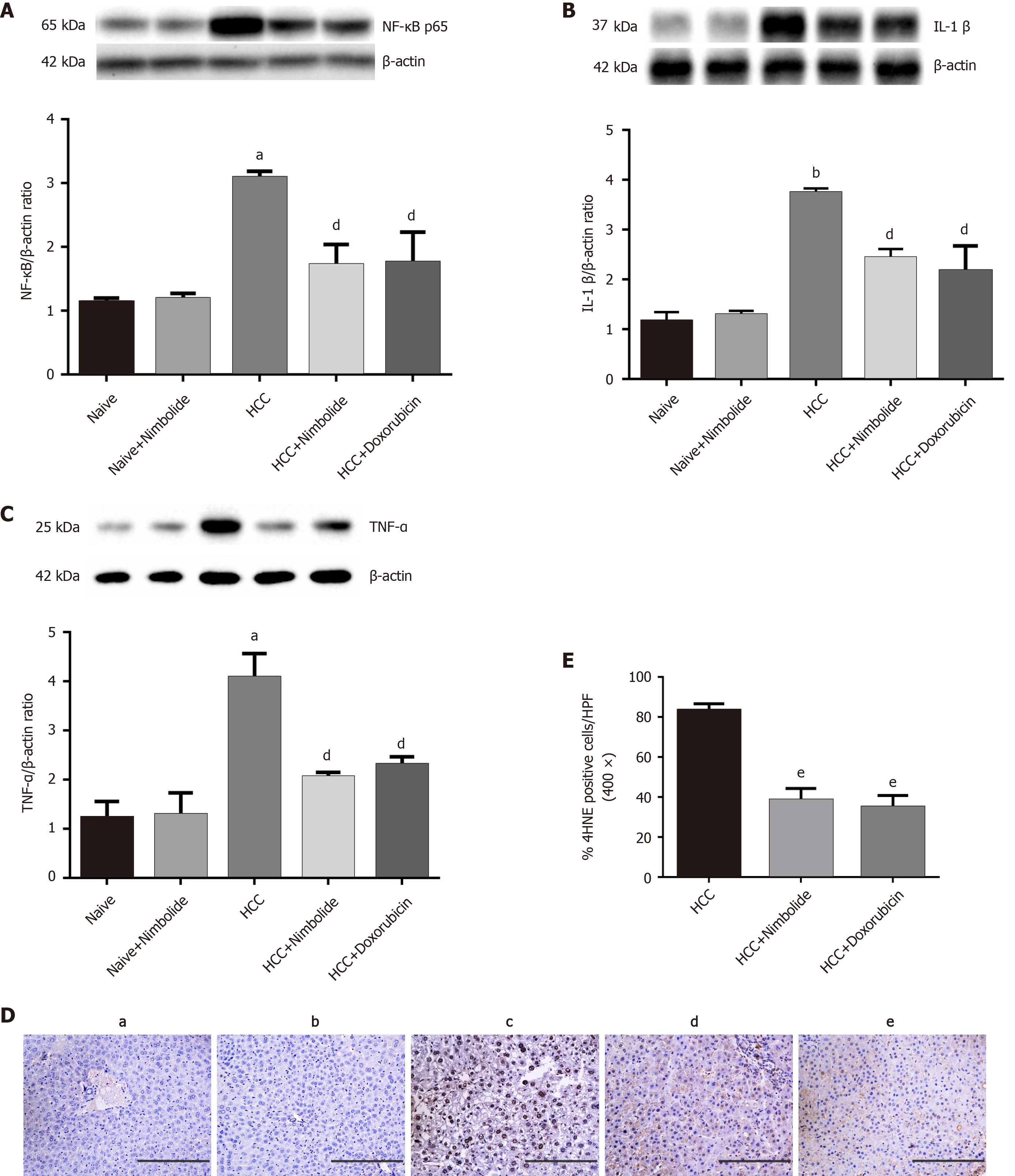Copyright
©The Author(s) 2020.
World J Gastroenterol. Dec 7, 2020; 26(45): 7131-7152
Published online Dec 7, 2020. doi: 10.3748/wjg.v26.i45.7131
Published online Dec 7, 2020. doi: 10.3748/wjg.v26.i45.7131
Figure 4 Nimbolide ameliorates hepatic inflammation and oxidative stress in diethylnitrosamine and N-nitrosomorpholine hepatocellular carcinoma mice.
A-C: Hepatic protein expression levels of nuclear factor of kappa light polypeptide gene enhancer in B-cells, interleukin 1 beta and tumor necrosis factor alpha by western blot in naive and experimental groups; D: Representative images of 4-Hydroxynonenal (4HNE) immunostaining of mice liver from naive and experimental groups (200 × magnification); E: Quantification of 4HNE positive nuclei in experimental groups by counting five 400 × fields of each liver section. Scale bar: 200 μm; all the data are expressed as mean ± SEM (n = 3). The comparison between the groups was analyzed by one-way ANOVA followed by Tukey’s multiple comparison post-hoc test or Kruskal-Wallis followed by Dunn’s multiple comparison post-hoc test. aP < 0.01, bP < 0.001 compared to naïve group; dP < 0.05, eP < 0.01 compared to hepatocellular carcinoma group. NF-κB: Nuclear factor of kappa light polypeptide gene enhancer in B-cells; IL-1β: Interleukin 1 beta; TNF-α: Tumor necrosis factor alpha; 4HNE: 4-Hydroxynonenal; HCC: Hepatocellular carcinoma.
- Citation: Ram AK, Vairappan B, Srinivas BH. Nimbolide inhibits tumor growth by restoring hepatic tight junction protein expression and reduced inflammation in an experimental hepatocarcinogenesis. World J Gastroenterol 2020; 26(45): 7131-7152
- URL: https://www.wjgnet.com/1007-9327/full/v26/i45/7131.htm
- DOI: https://dx.doi.org/10.3748/wjg.v26.i45.7131









